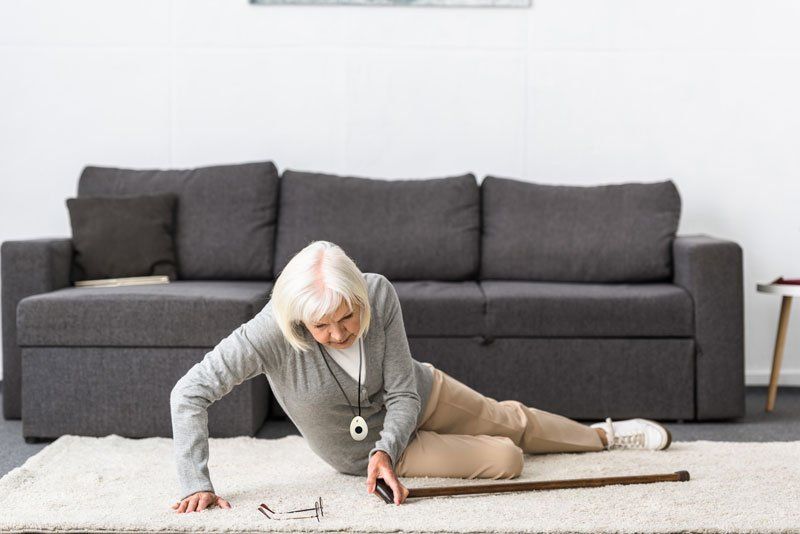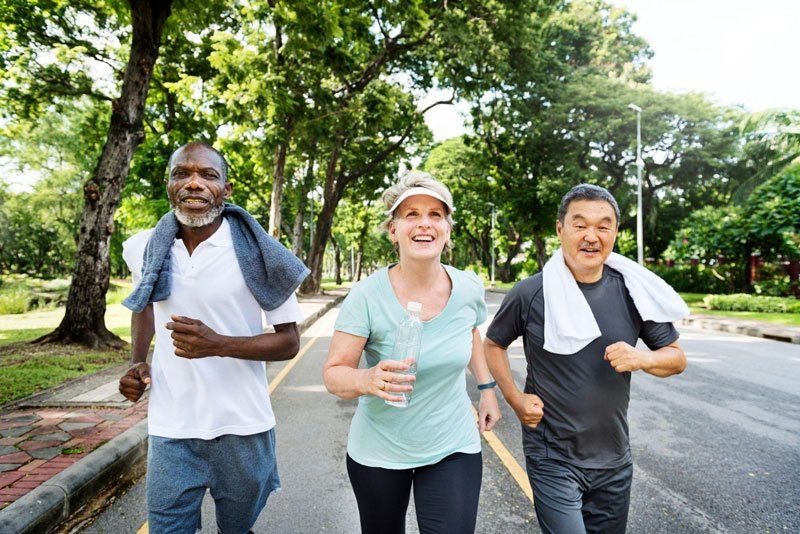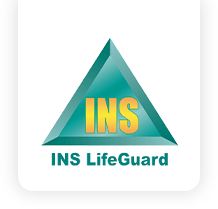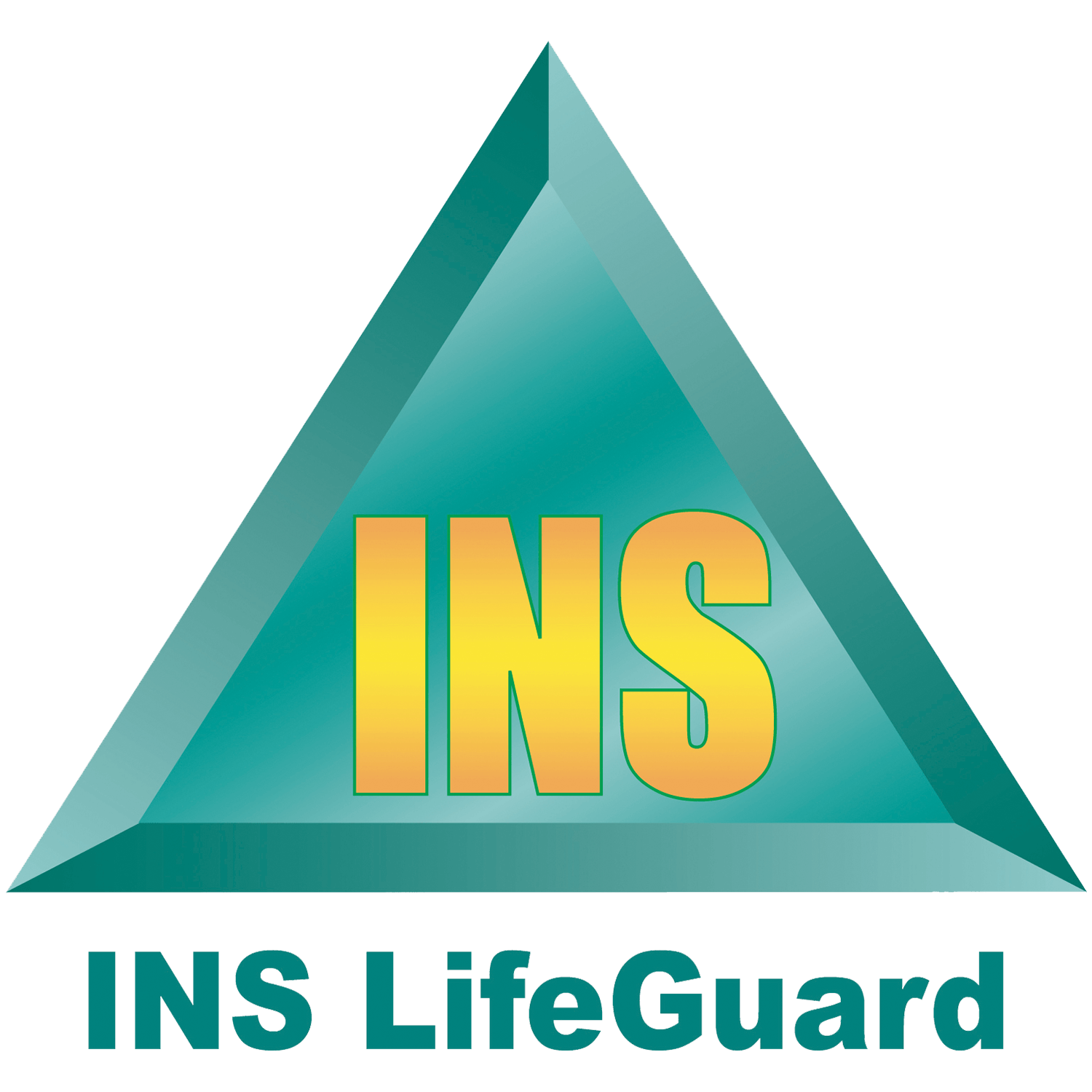INS LifeGuard
INS LifeGuard
International Enquiries
Falls in Aged Care: The Importance of Prevention

One in three Australians aged 65 and over fall each year, with one-third of these falls resulting in hospitalised injury cases. For residents in aged care facilities, the numbers are even more concerning, with half of all residents falling at least once per year.
A research study conducted by Curtin University found that for every fall that results in a hip fracture, there are an additional nine falls that cause moderate-to-major injury. This highlights just how important it is to prevent falls in aged care facilities.
Falls can have a devastating impact on older people, often resulting in serious injury, loss of confidence, reduced mobility and decreased independence.
There are no denying how useful medical alert systems are as safety nets in an emergency. INS LifeGuard gives users the freedom to live independently, safe in the knowledge that if there is an accident or fall, they can get help quickly.
A person may be reluctant and anxious about what happens when they press the alarm they may also feel like they are losing their independence or as though they can no longer be trusted to take care of themselves. Lisa approached this daughters Father with compassion and understanding, making it clear that our goal is the same as his – to remain safely independent at home for as long as possible, convincing him to wear his pendant.
The Father did have a fall a few days later and as a result of Lisa taking the time, he was fortunately wearing his personal alarm for a positive outcome and had an ambulance attend. They reported had he not, the outcome may have been different.
Below we will discuss the importance of fall prevention in aged care and elderly people remaining independent in their homes plus outline some strategies that can be implemented to help keep your loved ones safe.
What is a Fall?
A fall is defined as “an event which results in a person coming to rest inadvertently on the ground or floor, other than as a consequence of sustaining a collision with another person or object.”
Falls can occur anywhere and at any time, but they are most common in older people, who are more likely to experience frailty and poor balance. Falls can cause serious fall-related injuries, including broken bones, head injuries, and bruises. In some cases, they can even lead to death.
Falls in Elderly: Symptoms and Causes
Falls among the elderly is a serious problem and one that is often under-recognised. They can cause significant injuries, including fractures, head injuries, and even death. In fact, falls are the leading cause of injury-related death in people over the age of 65.
There are many different factors that can contribute to falls in the elderly. These include muscle weakness, poor balance, vision problems, medications that can cause dizziness or drowsiness, reduced strength and coordination, and environmental hazards. Falls can also be caused by environmental factors such as slippery floors or cluttered rooms.
Fall-related injuries can range from minor cuts and bruises to more serious injuries like broken bones, hip fractures or head injuries. In some cases, falls can even lead to death.
In addition to the physical impacts, falls can also have a significant psychological impact, causing anxiety, fear, and a loss of confidence. This can lead to social isolation and a decline in physical activity, which can further increase the risk of falling.
If you notice any of these signs in yourself or someone else, it’s important to seek medical help to avoid injuries.
The Importance of Prevention
Falls can have a significant impact on an individual’s quality of life, so it is important that steps are taken to prevent them from happening. If a fall does occur, it’s important to seek medical help immediately. Once the person has been assessed by a healthcare professional, they will be able to develop a plan to prevent future falls from happening. This might involve making changes to the environment, modifying medications, and providing patient education.
By following the strategies we listed in your aged care facilities, we can assure you that they can significantly reduce the leading cause of falls occurring.
Fall Prevention for Older Adults
Preventing falls can be a tough task, but it is not impossible.
For those who are at an increased risk of falling, the best way to prevent these falls is by implementing a comprehensive fall prevention plan. This plan will include four key components:
1. Environmental Modifications
The first step in fall prevention is to modify the environment. This includes things like making sure there are no throw rugs or carpets that may cause a tripping hazard. The floors should be kept clean and free of any debris.
It’s also a good idea to remove any items from the immediate area that may present a tripping or falling hazard, such as throw pillows, remote controls, and other objects.
It’s important to make sure all stairways have a handrail and that it is securely positioned on both sides of the stairs. You also want to make sure that all doors have enough support and don’t slam shut when they’re opened.
2. Accessible Facilities
One of the most important preventative measures is ensuring that facilities are accessible. Accessibility can be achieved through a variety of means, such as installing ramps or handrails. It’s also important to ensure that pathways are clear and free of clutter.
A clean, well-lit environment also contributes to safety. There should be proper lighting in the pathways and common areas, as well as lights in the rooms where people spend most of their time in the aged care facility.
3. Assessments and Screening
Another step in preventing falls is assessing the risk factors of each individual. This assessment can help identify physical and environmental hazards that might cause a fall.
It’s important to have an occupational therapist complete a comprehensive assessment before implementing any fall prevention strategies. They will also go through a detailed screening process with your loved one to rule out any underlying health problems that could be causing them to slip or trip. If there are any medical concerns, they should be addressed before implementing any interventions for fall prevention.
4. Training Staff on Fall Prevention
One of the most important steps in preventing falls is ensuring that your staff are properly trained. Allied health professionals need to have a good understanding of the issues related to falls and how they can be prevented. They also need to know what actions to take when a resident has fallen, including how to assess the resident for injuries and if necessary, call for emergency help.
5. Patient Education
An important part of fall prevention is educating patients about the risks and what they can do to reduce them. This might include talking about their medications and making sure they know about any side effects that could make them more likely to fall.
Patients should also be encouraged to stay active and exercise regularly, as this can help to improve their balance and coordination. They should be taught how to safely get in and out of beds, chairs, and bathtubs, and given assistance if needed.
Finally, patients should be made aware of any hazards in their environment and how to avoid them. For example, they should be told to keep the floors clear of clutter and electrical cords, and to wear shoes that fit properly and provide good support.
6. Exercise and Physical Activity
A study says individuals who are physically active are less likely to fall than those who are inactive. Exercise can help to improve balance, strength, and flexibility, all of which can help to reduce the risk of falling.
There is a range of exercise programmes that have been specifically designed for aged care residents. These can be done alone or with a group, and they can be made to fit each person’s needs and abilities.
Some aged care facilities also offer group exercise classes, which can be a great way for residents to stay active and socialize at the same time.

7. Medication Management
Many falls occur as a result of medications that cause dizziness or drowsiness. It is important that any medications that may increase the risk of falling are reviewed on a regular basis.
If you are concerned about any of the medications your loved one is taking, speak to their doctor or pharmacist. They may be able to recommend an alternative medication that does not have the same risk of causing falls.
By doing these falls prevention strategies, we can help to ensure that our elderly loved ones can live their lives safely and with dignity.
Fall Prevention Products and Solutions
INS LifeGuard products and solutions can help prevent falls in aged care facilities. We offer products, such as our LifeGuard SmartTracker and LifeGuard SafetyWatch, that can detect sudden movements that would indicate a fall has occurred.
If either the SmartTracker or SafetyWatch detects a fall, it will automatically send an alarm to INS Emergency Response Centre. This way, they won’t have to worry about not getting the help needed if they fall during the night or if they’re on their own and fall unexpectedly.
Their is also transmitters that compliment the INS LifeGuard in-home medical alarms below.
Call points such as LifeGuard VR Call Point makes use of powerful speech recognition technology to recognise pre-programmed vocal commands or keywords and initiate defined actions, such as calling for help.
Fall sensors, if a fall is detected and there is no sudden movement within 10 seconds after the fall detection an alarm is sent to our Emergency Response Centre, irrespective of the user activating the alarm. * You can also press the button at any time if you need assistance.
We also have personal transmitters that accompany our in-home medical alarms and can be worn on the wrist or as a pendant. Bathrooms can be a dangerous place for seniors - up to 80 percent of falls in the home occur in the bathroom. These wearables are waterproof so can be worn in the shower, sends an emergency call for help by pressing the button on the transmitter. The raised, tactile button makes it very easy to press, so it’s suitable for those who may have arthritis, lupus or fibromyalgia. A nurse will speak to the user over a loudspeaker on the console. You do not need to be near the console unit to be heard.
These products and solutions can make all the difference when it comes to the outcome of a fall among elderly Australians in aged care facilities. It will all send alarms through to our 24/7 emergency response centre who are nurses when an emergency happens. Visit our product page for a complete list.
Final Thoughts
Falls are a serious problem in residential aged care, but the risk can be minimised, by following the strategies we mentioned.
At INS LifeGuard, we are committed to helping aged care facilities create safe environments for their residents. Our fall prevention products are designed to help reduce the risk of falls and keep people safe.

About
INS LifeGuard is the only 24/7 nurse on-call personal and medical monitoring in Australia. We provide monitoring technology for both in the home and on the go and can also monitor other provider's equipment. Our services are suitable for anyone wanting support to stay independent such as the elderly, those with medical conditions and disabilities plus enhancing safety and security for lone workers.
Related Articles

-
Visit our website here
I hope you enjoy reading this blog post
INS LifeGuard is the only nurse on-call personal and medical alarm service in Australia. If you would like more information about INS LifeGuards solutions, visit our website here.
I hope you enjoy reading this blog post.
INS LifeGuard is the only nurse on-call personal and medical alarm service in Australia. If you would like more information about INS LifeGuards solutions, visit our website
here.

INS LifeGuard is the only nurse on-call personal emergency response service in Australia. We have a commitment to healthcare innovation which includes personal alarms and medical alert solutions that make independence easier, safer and more enjoyable.
Our services support Seniors, Carers, Providers, NDIS Participants, Retirement Villages, DVA, Lone Workers and anyone that wants the security that help is a press of a button away.
Quicklinks
LATEST POSTS
INS LifeGuard is the only nurse on-call personal emergency response service in Australia. We have a commitment to healthcare innovation which includes personal alarms and medical alert solutions that make independence easier, safer and more enjoyable.
Our services support Seniors, Carers, Providers, NDIS Participants, Retirement Villages, DVA, Lone Workers and anyone that wants the security that help is a press of a button away.
LATEST POSTS
Newsletter Archive
PO Box 485 Unanderra NSW 2526 Australia
INS LifeGuard
International Enquiries












